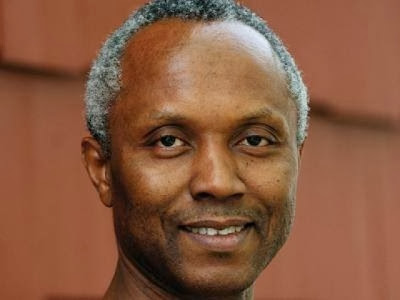INEC'S AWFUL OUTING IN ANAMBRA, BY OKEY NDIBE
I’m writing this piece first thing on Sunday morning, so I don’t know yet
which candidate and party won – by fair or foul means – the
governorship election in my home state of Anambra. But here’s what I
can say with confidence: the Independent National Electoral Commission
(INEC) lost.
Reports indicated that voting started late at many locations. Ballot
papers and result sheets were often missing. As in past elections, many
voters were unable to find their names on the voters’ roster. And there
was little or no voting in many parts of Idemili local government area. In
the end, INEC was compelled to reschedule voting in 65 wards in the
area.
In many other societies, what transpired in Anambra last Saturday would
be regarded as a portrait of utter failure. The INEC officials who oversaw
the colossal mess would have been too ashamed to hold on to their jobs
a day longer. If they didn’t resign, they would have been fired.
Alas, it’s Nigeria! It’s in a country where few are willing to call failure by
its proper name, and where failure – even when acknowledged – is never
anybody’s fault. Botched elections, like aircraft falling from the sky, are
It’s important to put INEC’s disastrous outing in perspective. Anambra is
only one of Nigeria’s 36 states, and INEC had no other election on its
calendar last week. In other words, the commission had time and human
resources on its side. It had all the time to get things right, to ensure
that the name of every registered voter appeared on the register, and that
electoral materials were shipped on time to all polling centers.
If INEC couldn’t conduct a hitch-free, credible election in Anambra, what
are the odds of its handling the fast-approaching 2015 nation-wide
elections with any integrity? If the names of many Anambra voters were
missing, then imagine the scale of the crisis when many more voters
around the country will come out to vote in 2015.
There’s hardly ever any good excuse for the disenfranchisement of
voters, period. The kind that happened last week in Anambra was
particularly egregious, especially since INEC had time to prepare, enough
manpower to do the right thing, and the logistics to pull off hitch-free
polls. There’s no reason why the governorship election could not have
gone through fluidly; no reason why voting did not take place on
Saturday in many parts of Idemili. The kindest view is to blame it all on
sheer incompetence. And if incompetence be the cause, then the
incompetent electoral officials deserve to be fired.
A more likely explanation for the Idemili imbroglio is that it was a man-
made glitch, a calculated, well-designed, deliberately engineered cog in
the electoral wheel. My suspicion is that the electoral fiasco in Idemili
was a scheme to suppress votes, subvert a candidate, or grant undue
advantage to another. Electoral fraud is one of the gravest infractions in
any society that cherishes the free exercise of the vote. And if Nigeria
were a country where serious crimes are frowned upon, the electoral
screw-up in Anambra, and particularly Idemili local government area,
would have invited serious prosecutorial scrutiny.
Nigeria is 14 years into what we used to call our “nascent democracy.”
Today, unlike the first few years after this particular phase of Nigeria’s
political adventure started in 1999, there’s nothing nascent about it
anymore. And, as in the first few years, it’s still hard to argue that
there’s a lot of “democracy” in Nigeria’s political experiment.
I received numerous telephone calls the last few days before Anambra’s
governorship election. Some of the callers were curious that I had not
come out in support of any of the candidates. I explained that, as a
principle, I never endorse any candidate. Instead, I champion the sanctity
of the electoral process. If Nigeria professes to practice democracy, then
that profession must be borne out, at minimum, in the way elections are
conducted. Nigerians ought to be able to trust INEC to conduct credible
elections in which the declared winners match the true choice of the
electorate. That is no great expectation; it should be non-negotiable.
Sadly, that’s far from the case. Olusegun Obasanjo, who became this
nascent democracy’s first president, could have advanced the cause of
electoral probity. Given his military antecedents, he was cast by many as
a necessary bridge from years of military dictatorship to a dawning
democracy. Instead, the man made himself into an imperial president
and militarized Nigeria’s politics. He approached each election – after
the fashion of armed combatants – as a “do-or-die” affair. In many
ways, Nigeria has not been able to shake off Obasanjo’s legacy of going
to war against voters, rather than wooing them.
In 2003, the Peoples Democratic Party – or, specifically, one of its
“godfathers,” Chris Uba – imposed Chris Ngige as Anambra’s governor.
It was widely known that the true winner of that election, and the
dispossessed candidate, was Peter Obi of the All Peoples Grand Alliance
(APGA). I opposed the PDP’s imposition. Even when many in Anambra
were lauding Mr. Ngige, a medical doctor, for renouncing his political
godfathers and grand godfathers, for tackling the state’s ghastly roads,
and for paying civil servants’ salaries (yes, a responsibility ignored by
his predecessor, Chinwoke Mbadinuju), I insisted that Mr. Obi should not
– in fact, could not – abandon the legal battle to reclaim an office the
voters of Anambra voted to have him hold in trust for them. It took
several years, a lot of political maneuvers and legal rigmarole, but Mr.
Obi finally became governor. It was as it should be.
I had hoped that Mr. Obi’s eventual triumph would set Anambra as the
epicenter of electoral propriety in Nigeria. That hope has been far from
realized. Last week’s shame in Idemili gave another red eye to INEC, and
further cast doubt over the electoral commission’s ability – or even will
– to earn the word “Independent” that sits, like a bad joke, at the
beginning of its name.
No, even the soundest elections would not begin to solve Nigeria’s
myriad crises. Yet, there are at least two solid reasons why enlightened
people must insist on transparently credible elections. One: once we
establish that votes count, always count, then elected office holders
would be placed under notice that they serve, and will be re-elected, at
the pleasure of voters. Odds are that a higher percentage of office
holders would then spend some time serving the common good, instead
of making the “godfathers” that enthroned them happy. Two: once
Nigerian polls become discernibly credible, rather than expensive scams,
the chances will be better of attracting better candidates – especially
those equipped with vision, imagination, and the talent for translating
lofty dreams into reality.
It’s tragic that INEC officials, through sheer incompetence and/or
criminal treachery, continue to make the arena of Nigerian politics the
preserve of sponsored mediocrities and would-be looters.
My novel, Foreign Gods, Inc. will be published on January 14, 2014.
Please follow me on twitter @ okeyndibe



Comments